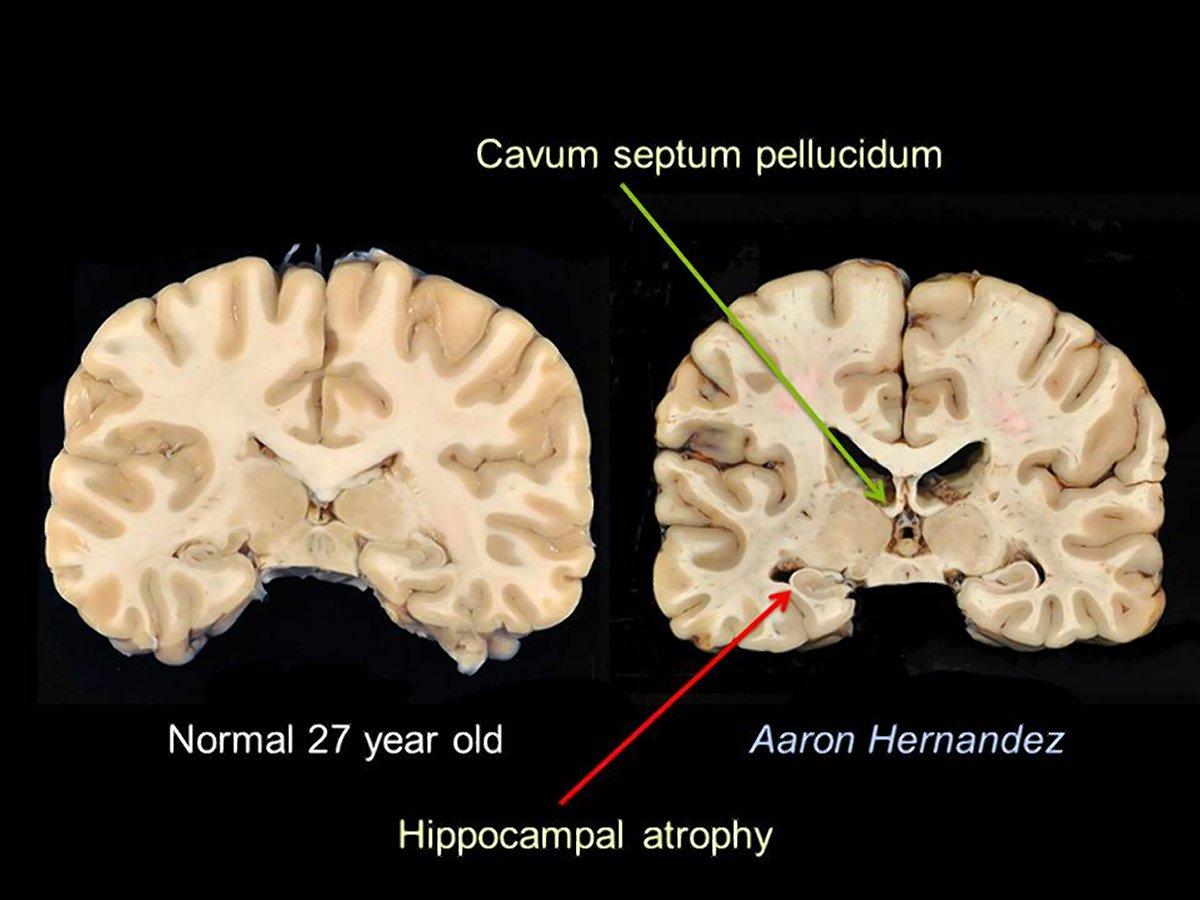
Earlier this year, Aaron Hernandez committed suicide in his jail cell, days after being found not guilty of the 2012 double-homicide he was accused of. Hernandez was already spending life in jail for the murder of Odin Lloyd.
Months after his death, a report released by his attorney said that the former New England Patriots tight end’s brain showed severe signs Of CTE, the likes of which are only seen in players around the age of 65-70 years old.
According to the Washington Post:
In a diagnosis that linked one of football’s most notorious figures with the sport’s most significant health risk, doctors found Hernandez had Stage 3 CTE, which researchers had never seen in a brain younger than 46 years old, McKee said. Because the center has received few brains from people Hernandez’s age, McKee could not say whether Hernandez’s brain was representative of a 27-year-old who had played football as much as Hernandez. But she found the advanced stage of CTE alarming.
“In this age group, he’s clearly at the severe end of the spectrum,” McKee said. “There is a concern that we’re seeing accelerated disease in young athletes. Whether or not that’s because they’re playing more aggressively or if they’re starting at younger ages, we don’t know. But we are seeing ravages of this disease, in this specific example, of a young person.”
At Thursday’s conference, McKee flipped through slides comparing sections of Hernandez’s brain to a sample without CTE. Hernandez’s brain had dark spots associated with tau protein and shrunken, withered areas, compared to immaculate white of the sample. His brain had significant damage to the frontal lobe, which impacts a person’s ability to make decisions and moderate behavior. As some new slides appeared on the projectors, some physicians and conference attendees gasped.
“We can’t take the pathology and explain the behavior,” McKee said. “But we can say collectively, in our collective experience, that individuals with CTE, and CTE of this severity, have difficulty with impulse control, decision-making, inhibition of impulses for aggression, emotional volatility, rage behaviors. We know that collectively.”
McKee said Hernandez had a genetic marker that makes people vulnerable to certain brain diseases and could have contributed to how aggressively he developed CTE.
“We know that that’s a risk factor for neurogenerative disease,” McKee said. “Whether or not that contributed in this case is speculative. It may explain some of his susceptibility to this disease.”
Here are the photos:


Back in September, an attorney for former New England Patriots tight end Aaron Hernandez announced Thursday a $20 million lawsuit had been filed in federal court against the New England Patriots and the NFL on behalf of the ex-player’s former fiancée, Shayanna Jenkins Hernandez, and the couple’s daughter.











Comments are closed.